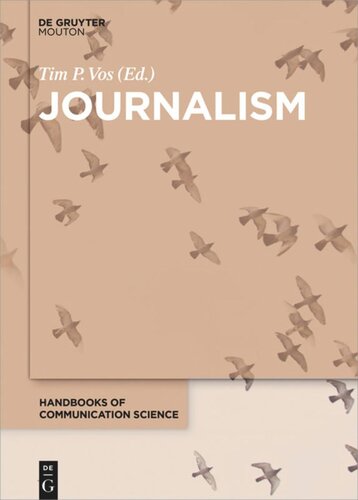

Most ebook files are in PDF format, so you can easily read them using various software such as Foxit Reader or directly on the Google Chrome browser.
Some ebook files are released by publishers in other formats such as .awz, .mobi, .epub, .fb2, etc. You may need to install specific software to read these formats on mobile/PC, such as Calibre.
Please read the tutorial at this link: https://ebookbell.com/faq
We offer FREE conversion to the popular formats you request; however, this may take some time. Therefore, right after payment, please email us, and we will try to provide the service as quickly as possible.
For some exceptional file formats or broken links (if any), please refrain from opening any disputes. Instead, email us first, and we will try to assist within a maximum of 6 hours.
EbookBell Team

4.4
72 reviewsThis volume sets out the state-of-the-art in the discipline of journalism at a time in which the practice and profession of journalism is in serious flux.
While journalism is still anchored to its history, change is infecting the field. The profession, and the scholars who study it, are reconceptualizing what journalism is in a time when journalists no longer monopolize the means for spreading the news. Here, journalism is explored as a social practice, as an institution, and as memory. The roles, epistemologies, and ethics of the field are evolving. With this in mind, the volume revisits classic theories of journalism, such as gatekeeping and agenda-setting, but also opens up new avenues of theorizing by broadening the scope of inquiry into an expanded journalism ecology, which now includes citizen journalism, documentaries, and lifestyle journalism, and by tapping the insights of other disciplines, such as geography, economics, and psychology.
The volume is a go-to map of the field for students and scholars—highlighting emerging issues, enduring themes, revitalized theories, and fresh conceptualizations of journalism.
This 30-chapter handbook includes chapters on: